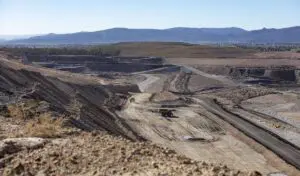“Energy poverty” is a term most would associate developing countries. Yet there are three million Australians living below the poverty line who do not have access to affordable household energy.
While the rest of us may shudder when we open a power bill, these Australians simply cannot afford to turn on a heater or run a washing machine.
This week’s Smart Energy Expo in Sydney will focus on how the energy transition from a centralised fossil-fuel dominated energy system to a decentralised clean energy system will create opportunities and benefits for consumers.
More than 1.8 million households have already installed rooftop solar, slashing their power bills and reducing carbon pollution. Yet the transition has the potential to increase inequality.
Up to sixty six percent of households will generate some energy by 2050, according to the CSIRO and ENAs Electricity Network Transformation Roadmap. This will save the average household $414.00 a year, but households with solar and batteries will be better off than those without.
It will likely be the three million people in Australia living below the poverty line and the millions in private rental or public housing, that is those who have less choice and control, who will miss out.
Without specific policies to address this inequality, ACOSS is concerned that the future energy market will create a two-tiered system – those who can access and afford and household solar and storage and those who cannot.
Governments, the energy sector and developers of emerging technologies must put the needs of the vulnerable and disadvantaged families at the centre of the energy transition.
This will not only relieve energy and financial stress but create benefits, it will have positive social, health, and economic outcomes for communities.
Emerging technologies that automate efficient energy use in the home, sell excess energy into the grid or provide it to those without access to solar, with little to no input needed from the household, could provide significant benefits to low-income and disadvantaged housholds.
There are some good examples of programs that are benefiting low-income and disadvantaged households.
The Queensland Government is piloting the installation of solar energy on public housing in three locations.
St George Community Housing have invested in building new and retrofitting older community houses to incorporate energy efficiency and solar PV with support from the Clean Energy Finance Corporation (CEFC) and NSW Government. Residents are saving up to $570 dollars each year per property.
For private renters, landlords have no incentive to invest in energy saving measures, even when these measures are free. City councils including Darbin in Melbourne andthe City of Adelaide are providing programs to remove up-front costs of installing solar to landlords.
A community group in regional NSW has teamed up with the not-for-profit CORENA fund to give landlords interest-free loans to install solar on their rental properties.
Private enterprises like SunTenants and Matter are providing business models where tenants and landlords save money.
Tesla is proposing a “virtual power plant” in South Australia that prioritises Housing Trust and low income households, offering free installation of solar and battery storage and a 30 per cent discount on electricity usage.
However, without mandatory requirements for rented properties to meet minimum energy standards, landlords are unlikely to bother installing solar at the low end of the rental market.
In the future all new properties may have clean energy measures embedded as standard. The CEFC has recently partnered with Mirvac to embed clean energy measures in residential communities in Sydney and Brisbane that will meet 90% of household consumption.
Though still few and far between Indigenous communities are also benefiting from solar, helping to reduce energy bills, create jobs, grow communities, and care for the land.
They are being delivered by a mix of government funding such as the ARENA and Northern Territory Government project at Daily River and private investment such as the Indigenous Business Australia partnership with Indigenous corporation AllGrid Energy in the Barkly tablelands.
While these examples are heartening, we are not doing enough. Initiatives to date have been small-scale, slow and piecemeal.
Those experiencing disadvantage have different needs and require different solutions.
ACOSS fears leaving the solutions purely up to the market and fragmented government policies will not be enough to reduce cost of living pressures and household power bills for all.
It is incumbent on governments, the energy sector and developers of emerging technology to priorities the removal of barriers and invest first in programs to deliver clean energy solutions to low-income and disadvantage households.
In its submission to the ACCC Electricity supply & prices inquiry, ACOSS has called for the establishment of a process – like the Gas Market Reform Group.
We need a dedicated process to lead the design, development and implementation of policies, programs and systematic reforms to that deliver distributive energy and inclusive and equitable and benefits to low-income and disadvantaged households.
Building in the needs of vulnerable households into new energy solutions and services will be critical to ensure our future energy system and society is inclusive and more equitable.
In the meantime more needs to be done now to relieve the pressure on those currently doing it tough. That means retaining the energy supplement; increasing Newstart; shifting to fair percentage based energy concessions and implementing minimum energy efficiency standards for rental properties.
If we take bold steps now, Australia’s smart energy revolution will address inequality, not further entrench it.
Author: Kellie Caught is senior advisor, Climate and Energy, Australian Council of Social Service (ACOSS)










